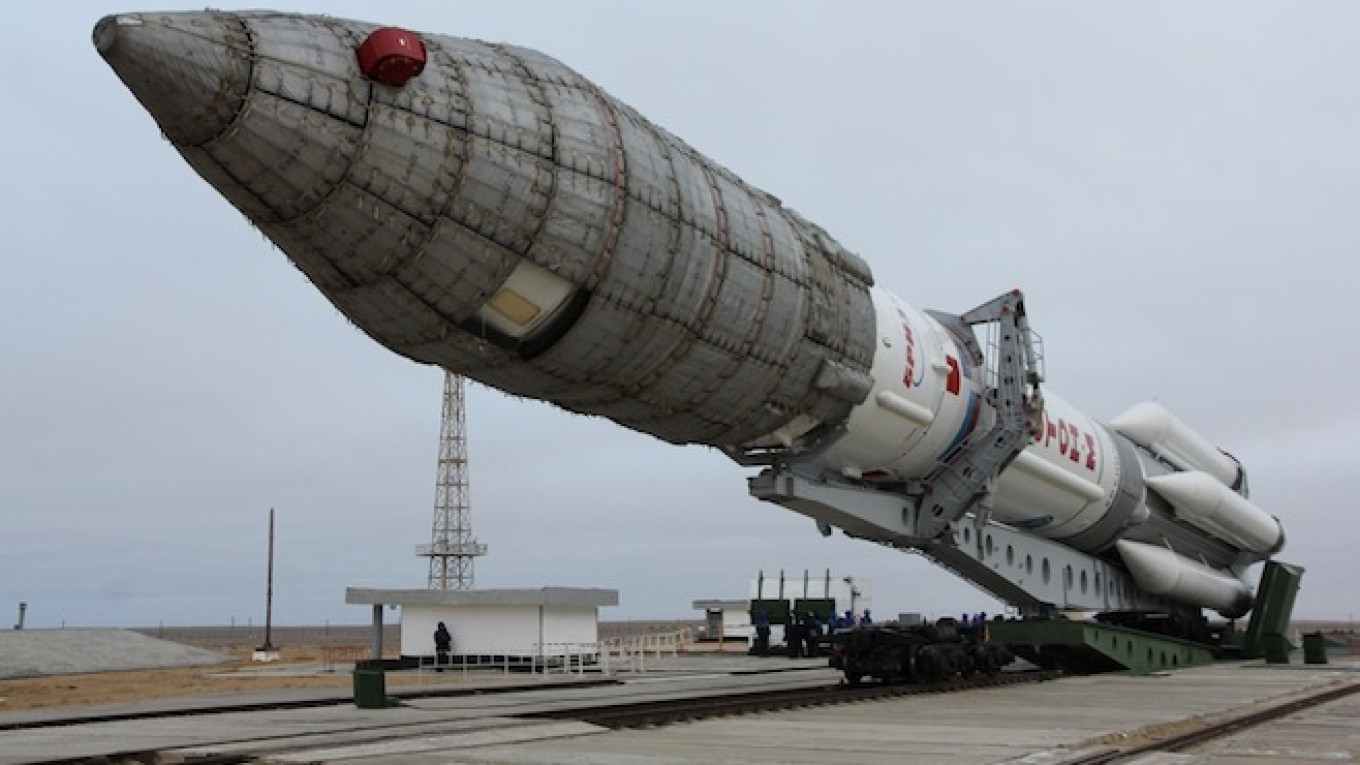On the eve of the 400th flight of Russia's venerable Proton-M space rocket on Friday, Russia and Kazakhstan have agreed to begin reducing the frequency of Proton launches from the Baikonur Cosmodrome.
"The question has been absolutely agreed upon and laid out in a protocol," Oleg Ostpenko, the head of Russia's federal space agency Roscosmos, was quoted by the Interfax news agency as saying on Monday.
Proton has been Russia's workhorse for 40 years and today is the dominant force on the global commercial satellite launch market. Over the past decade it has been used in 30 percent of all commercial flights.
But now, Russia and Kazakhstan — responding to both environmental concerns and the development of Russia's next-generation Angara rocket family — have agreed to begin phasing out the rocket's use.
Proton rockets are powered by an extremely toxic combination of heptyl, amyl and kerosene.
The fuel has threatened the environmental health of the Kazakh countryside, where the Baikonur center is located, amid a string of embarrassing Proton launch failures. A dedicated political movement in Astana, known as the anti-heptyl movement, was formed last year to lobby for an immediate end to Proton launches.
"It is a sensitive question for society," Kazakh Deputy Prime Minister Bakytzhan Sagintayev said Monday, Interfax reported.
"It is clear that [ending Proton launches] can't be done instantaneously, but steps are being taken," Sagintayev said, adding that a timetable has been established for the gradual annual reduction of flights from Baikonur.
One of the most prominently advertised features of the new Angara rockets is their use of liquid oxygen and kerosene fuel that is more environmentally friendly. Such rockets will be flown from the new Vostochny Cosmodrome in Russia's Far East.
Contact the author at bizreporter@imedia.ru
A Message from The Moscow Times:
Dear readers,
We are facing unprecedented challenges. Russia's Prosecutor General's Office has designated The Moscow Times as an "undesirable" organization, criminalizing our work and putting our staff at risk of prosecution. This follows our earlier unjust labeling as a "foreign agent."
These actions are direct attempts to silence independent journalism in Russia. The authorities claim our work "discredits the decisions of the Russian leadership." We see things differently: we strive to provide accurate, unbiased reporting on Russia.
We, the journalists of The Moscow Times, refuse to be silenced. But to continue our work, we need your help.
Your support, no matter how small, makes a world of difference. If you can, please support us monthly starting from just $2. It's quick to set up, and every contribution makes a significant impact.
By supporting The Moscow Times, you're defending open, independent journalism in the face of repression. Thank you for standing with us.
Remind me later.



